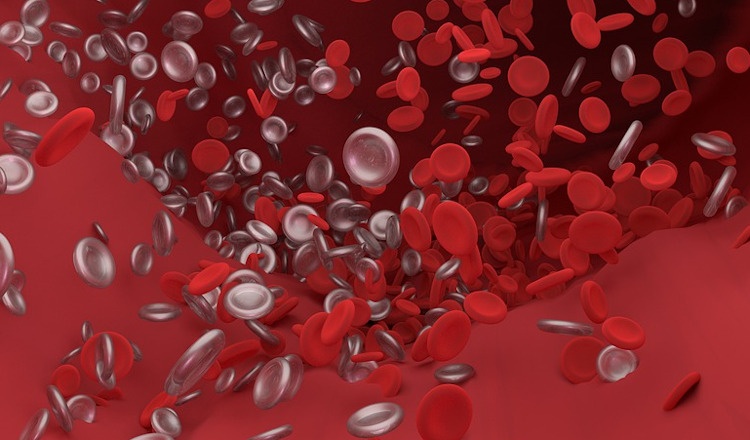
COVID-19, the mechanism of arterial thrombus formation discovered: the study
Arterial thrombus formation by COVID-19: a group of researchers from the Centro Cardiologico Monzino and the University of Milan, led by Marina Camera, head of the Cardiovascular Cellular and Molecular Biology Research Unit at Monzino and professor of Pharmacology in the Department of Pharmaceutical Sciences at the Statale University, in collaboration with Professor Gianfranco Parati and Dr. Martino Pengo of the Istituto Auxologico Italiano in Milan and the University of Milan Bicocca, has discovered the mechanism responsible for thrombotic complications in patients affected by Covid-19, proposing the scientific rationale for the use of drugs capable of blocking it, such as the common Aspirin.
The results are published in the prestigious Journal of the American College of Cardiology: Basic to Translational Science.
The study analyzed the state of activation of blood cells in 46 patients with Covid-19, admitted to the S. Luca Hospital, IRCCS Istituto Auxologico Italiano in Milan, by cytofluorimetric analysis, and compared it with that of healthy subjects and heart patients.
Thrombus formation by COVID-19: the role of platelet activation
“Patients with severe forms of SARS-CoV-2 pneumonia,” explains Camera, “suffer from hypoxemia not only because of inflammation of the pulmonary alveoli but also because of the presence of micro-and macro-thrombi in the blood, which can occlude pulmonary vessels.
In the first phase of our study, we showed how platelet activation in these patients may be responsible for the formation of these thrombi.
When the body is attacked by pathogens, such as SARS-CoV-2, it activates its immune response by releasing proteins called inflammatory cytokines, including Interleukin-6, into the bloodstream.
Sometimes, however, this reaction can be exaggeratedly violent, and the release of cytokines excessive, resulting in a so-called ‘cytokine storm’. Under these circumstances, the endothelium of the blood vessels becomes activated and, by reducing the production of prostacyclin and nitric oxide, two important anti-aggregating factors, loses control over the platelets.
Circulating monocytes and granulocytes are also activated, and each of these cells releases microvesicles into the bloodstream that have a high prothrombotic potential.
In this context, the numerous activated platelets aggregate with the circulating granulocytes and monocytes and, together with the microvesicles, contribute to the formation of macroaggregates that can obstruct the pulmonary microcirculation.
Microaggregates in arterial thrombus formation in COVID-19
“These alterations – comments Gianfranco Parati, Professor of Cardiovascular Diseases at the University of Milan Bicocca and Scientific Director of IRCCS Auxologico – may among other things contribute to the important alterations in pulmonary hemodynamics that the research group of Auxologico, in collaboration with the Pope John XXIII Hospital in Bergamo, has recently described in patients with severe forms of COVID-19 (Sergio Caravita et al. – European Journal of Heart Failure 2021)”.
“In the second part of the study – explain Paola Canzano and Marta Brambilla, researchers at Monzino and coauthors of the study – we reproduced the massive platelet activation documented in Covid-19 patients, putting in contact blood cells of healthy subjects with the plasma of Covid-19 patients.
We thus demonstrated that the hemostatic abnormalities caused by SARS-CoV-2 are not a direct consequence of the virus, but originate from the storm of cytokines, in particular, interleukin-6 excess”.
Tocilizumab and aspirin essential against arterial thrombus formation in COVID-19
“This result,” continues Camera, “explains why Tocilizumab, a monoclonal antibody directed against the interleukin-6 receptor, can prevent platelet activation.
Therefore, in an era of personalized medicine, its use should be reserved for patients with high levels of interleukin-6.
The strongest clinical message of our research,” she concludes, “is that for all cases of Covid-19, therapy can be optimized by inserting the best known and most widely used anti-aggregant: acetylsalicylic acid, i.e. Aspirin.
Current treatment protocols include the use of heparin, which is an anticoagulant, typically indicated for the treatment of venous thrombi, mostly resulting from bed rest or lack of physical exercise.
The platelet activation that we documented in our study, and which has also been confirmed in other international studies, suggests the specific use of an antiplatelet agent.
The observational analysis published today stands as a scientific rationale for the ongoing clinical trials that are evaluating the efficacy of antiplatelet agents in treating the dreaded thrombotic complications of SARS-CoV-2 infection’.
A published study on arterial thrombus formation in COVID-19
tROMBI 1-s2.0-S2452302X20305489-mainRead Also:
Can Proteins Predict How Ill A Patient Could Become With COVID-19?
Pulmonary Ventilation: What A Pulmonary, Or Mechanical Ventilator Is And How It Works


